Chile may not be known for its cuisine, but that doesn’t mean you shouldn’t be excited to sample some different food when you visit! The foods I’ll be mentioning in this post aren’t exactly fancy, but they are the typical things that I see people eating while perusing Santiago. I myself get particularly excited about Chilean desserts (see #4 & #5!).
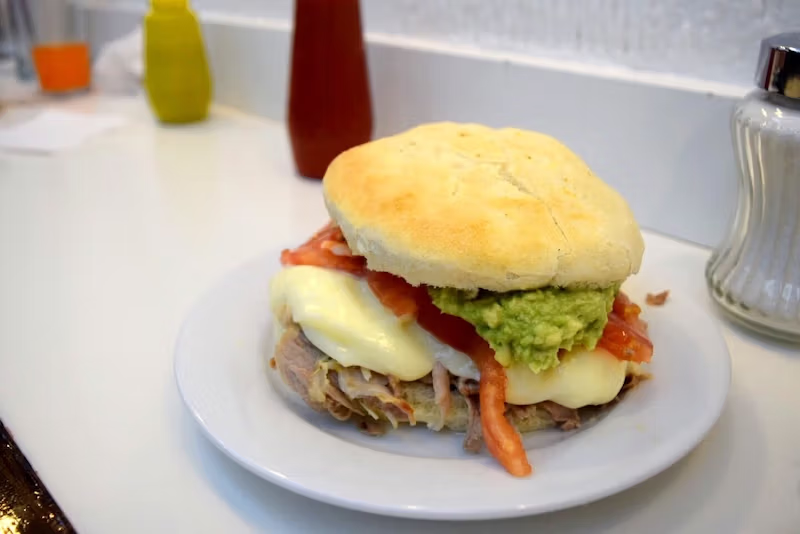
Lomito – Fuente Alemana
Fuente Alemana, meaning “German Fountain” in Spanish, is one of the most typical restaurants in Santiago. There are two locations in the area: one in Providencia close to the Pedro de Valdivia metro station and the other between Baquedano and La Católica stations. “Lomo” is pork, leading a “lomito” sandwich to be the gigantic combination of a hamburger-like bun with pork slapped on top of it along with tons of avocado and mayonnaise. Yep, I’m unsure as to why they use the diminutive “-ito” to describe this whopper of a sandwich (see photo). Due to this restaurant’s German influence, you can even get “chucrut” (sauerkraut) on your lomito.
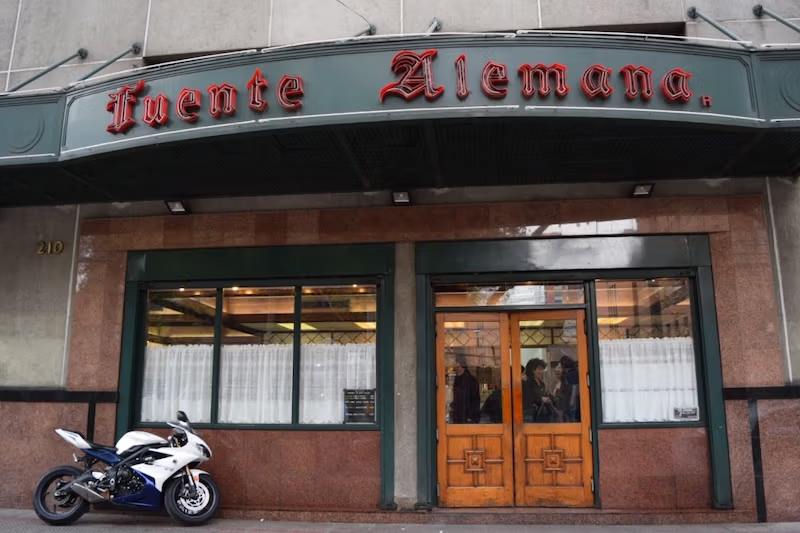
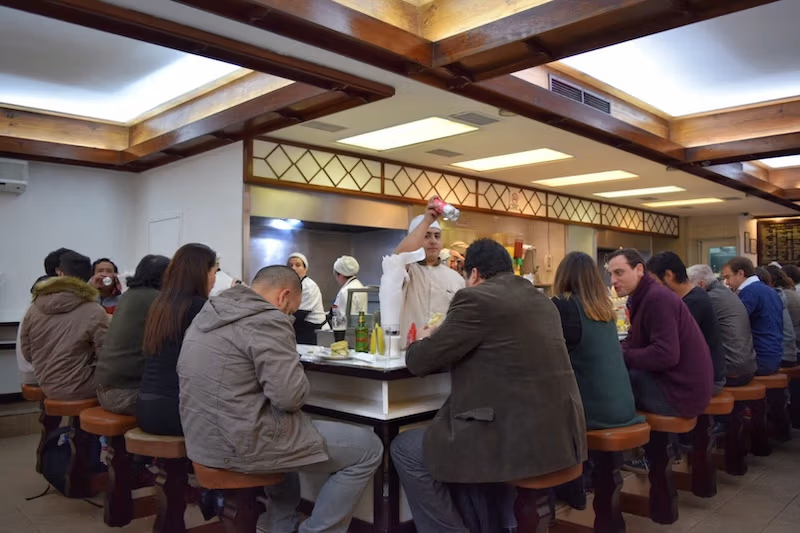
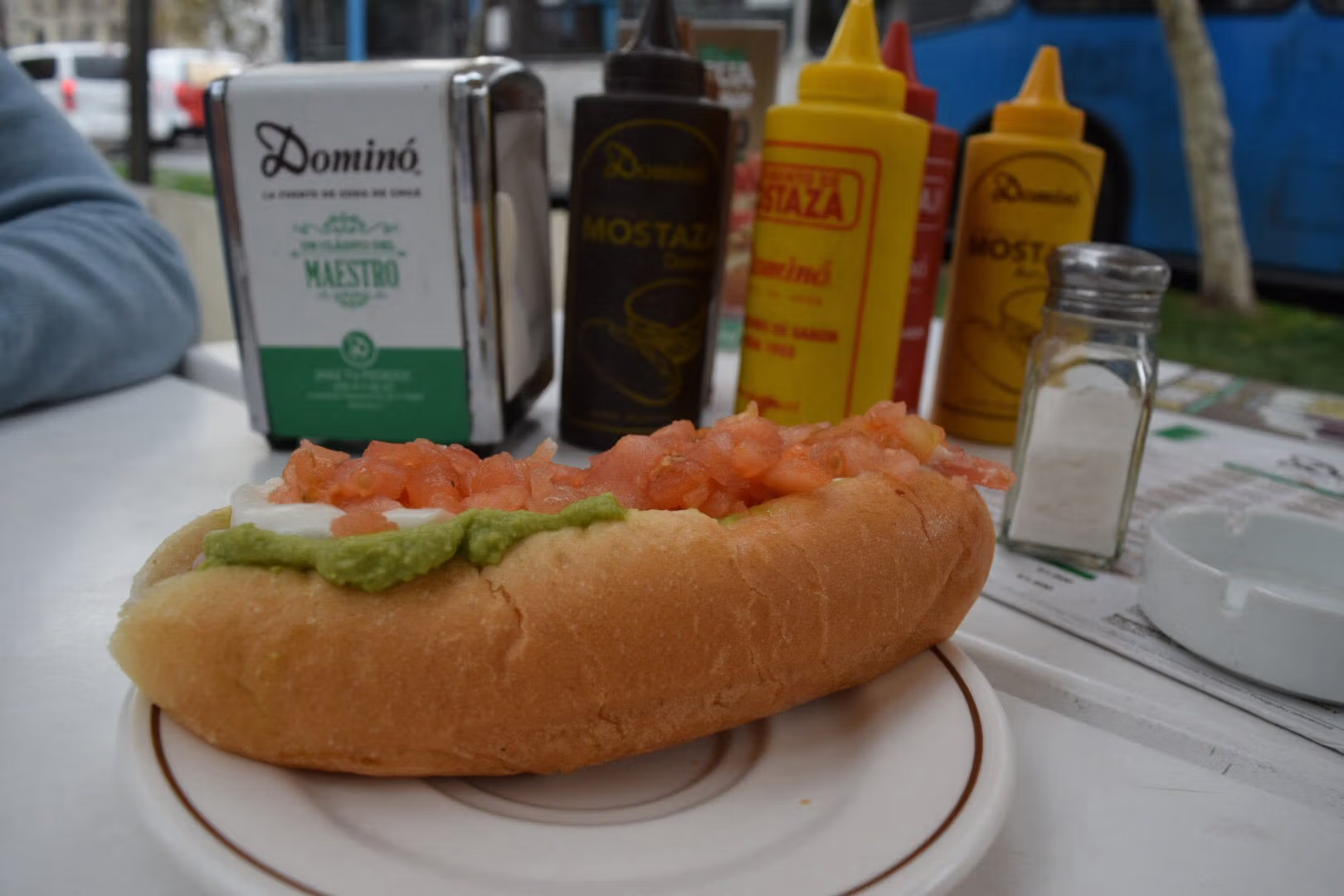
Completo Italiano – Dominó
Dominó is basically Chile’s version of a soda fountain shop, where you sit at the counter to order. I wouldn’t try to go during peak lunch hours (12:00 – 2:00 p.m.), because you most likely won’t even find a place to sit. Dominó is quite a big chain so you’ll be able to find these restaurants all over town, including locations by Manuel Montt, Pedro de Valdivia, and Tobalaba. The most popular fast food in Chile has to be the “completo italiano”, which is a hotdog covered in avocado, mayonnaise (are you noticing a trend?), and tomatoes. So why is this called “italiano” (Italian)? Let’s look again at the ingredients: avocado (green), mayonnaise (white), and tomatoes (red).
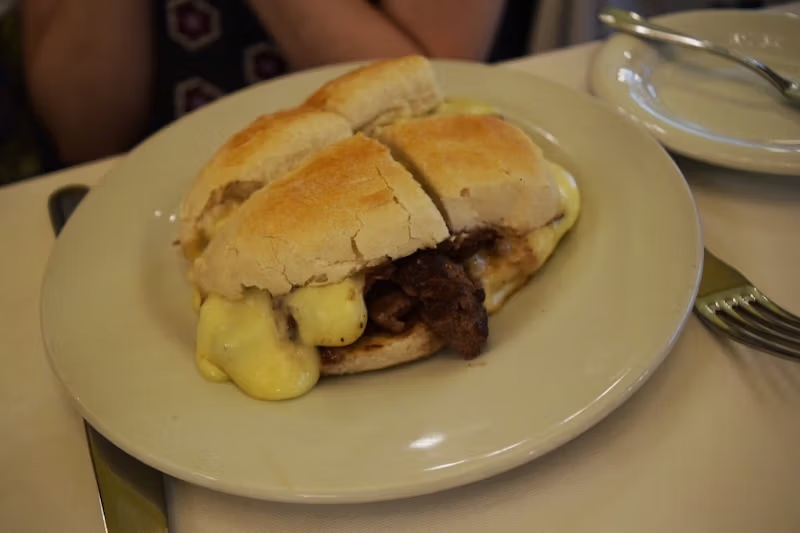
Barros Luco – Confitería Torres
Barros Luco is basically a more awesome version of grilled cheese. Per South American fashion, meat needed to be included into this dish. Confitería Torres in Santiago is home to the Barros Luco as previous Chilean president, Ramón Barros Luco, would frequent this restaurant and almost always request this order to be made especially for him. The combination of tender beef and melted cheese atop fresh-baked marraqueta bread is enough to make anyone’s mouth water (my apologies, vegetarians). Furthermore, Confitería Torres is one of my favorite buildings in Santiago for its old timey feel, making it Santiago’s version of Buenos Aires’ famous Café Tortoni.
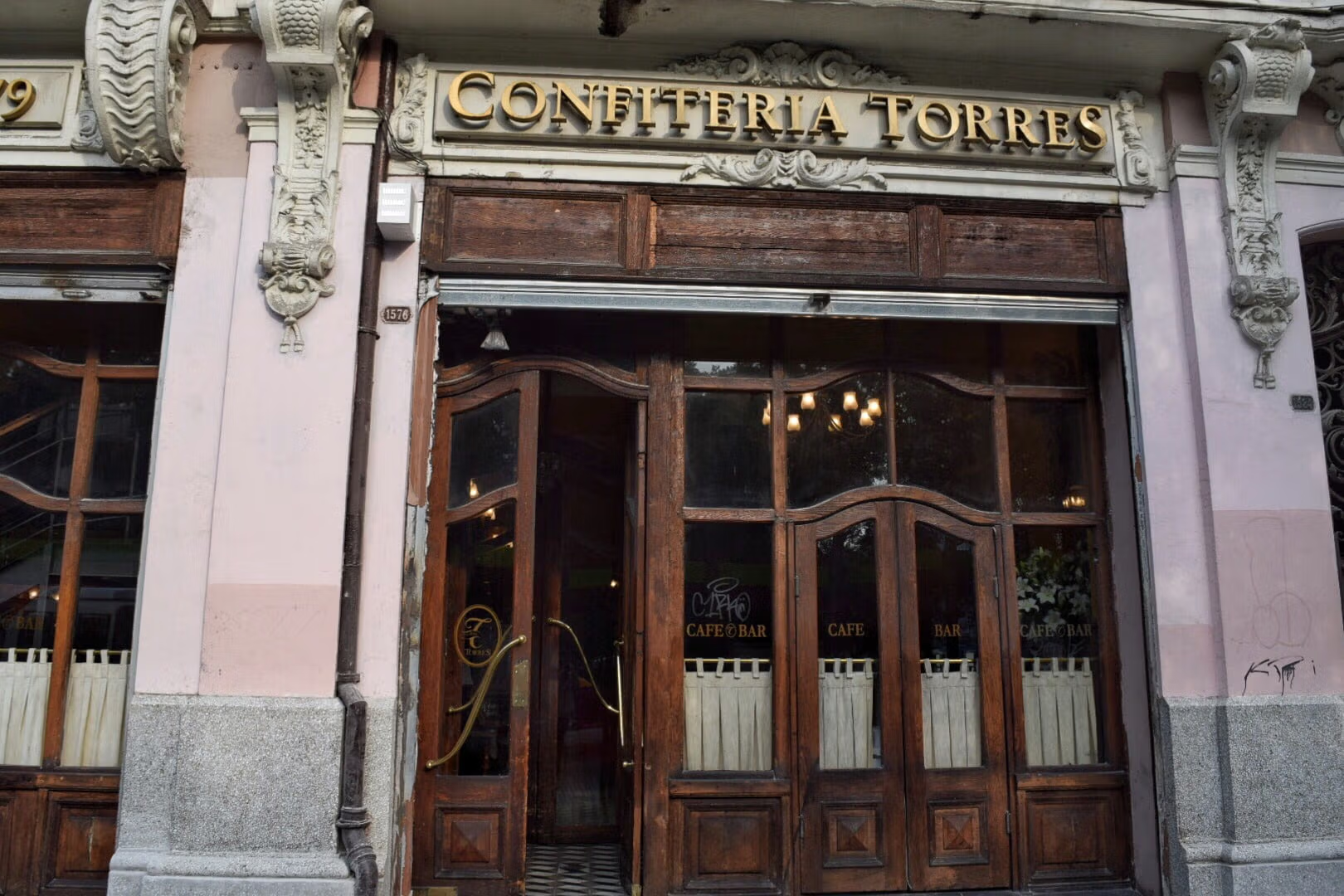
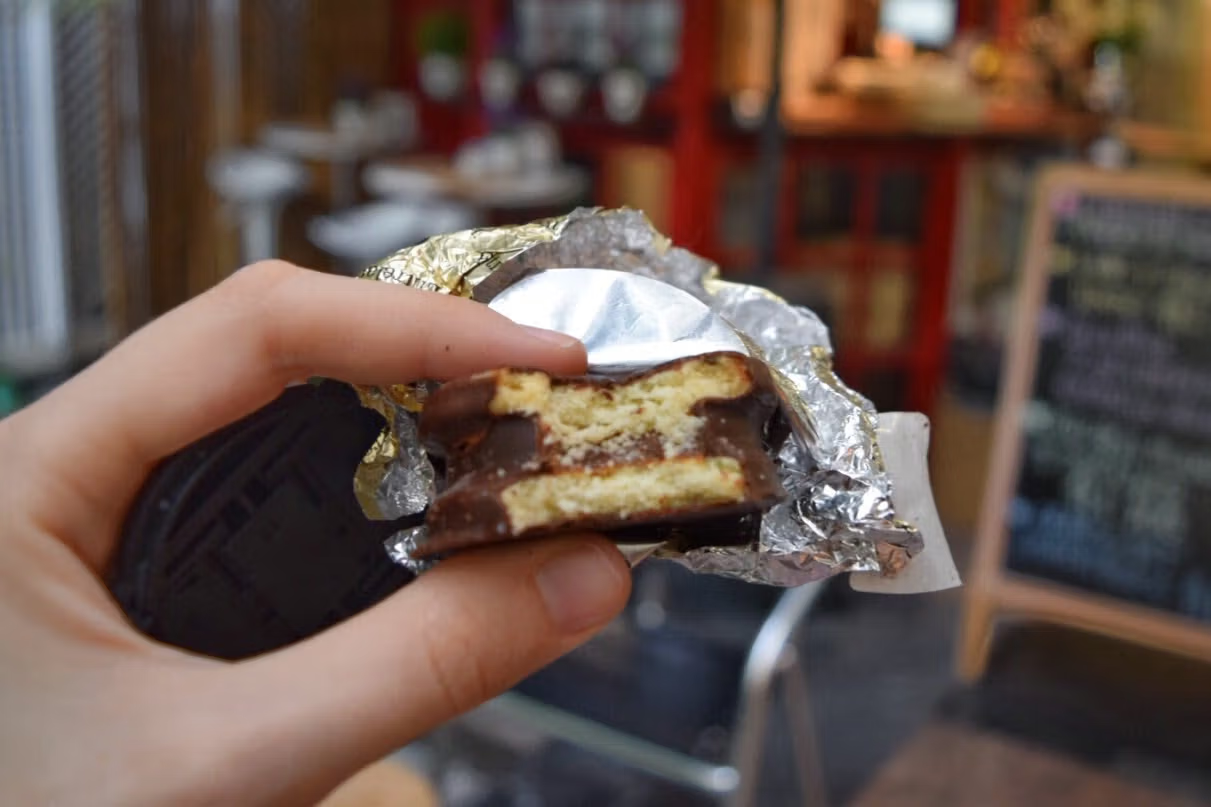
Alfajores – Entrelagos
Alfajores are pretty much the best cookies of all time. While an alfajor may look pretty plain in comparison to a Funfetti cake or a chocolate chip cookie at first, wait until you bite into this sweet treat before making a final judgement. Manjar, also known as Dulce de Leche in other countries, fills the inside of this cookie, making it a bit of a sticky manjar sandwich. The cookies making up the top and bottom layers taste a bit like a sugar or butter cookie, and if you’re lucky, you can even find an alfajor covered in chocolate!
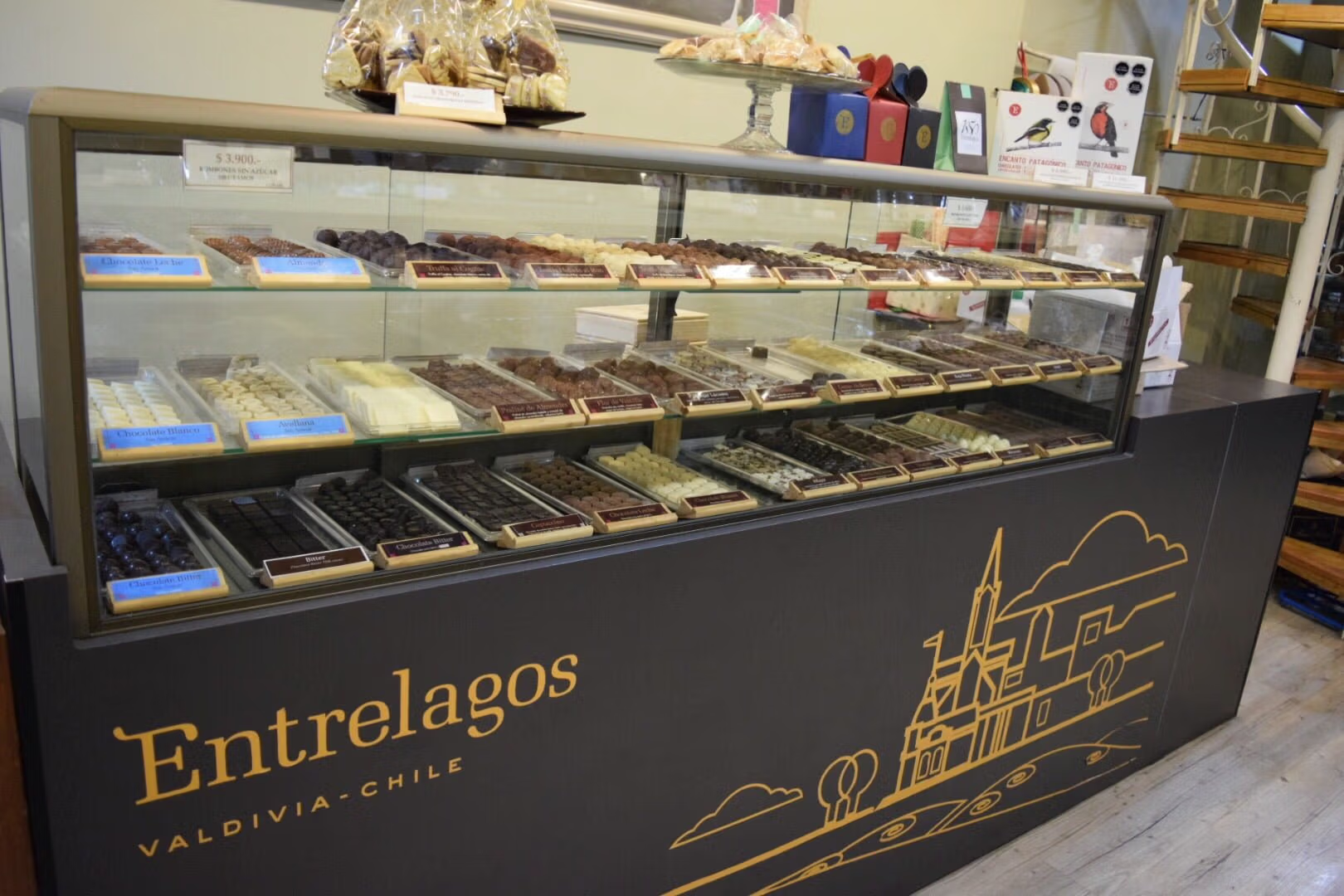
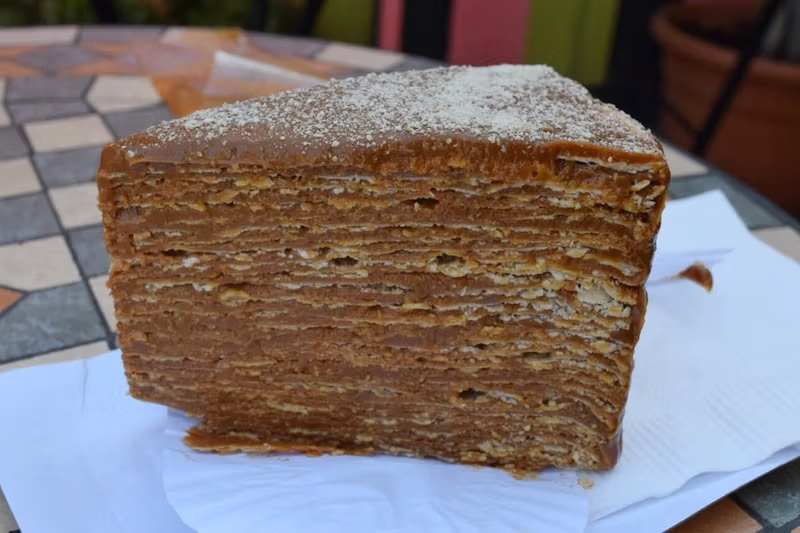
Torta de Mil Hojas – Pastelería Angélica
If you liked the manjar in the alfajor, just wait until you try a “torta de mil hojas”. I myself am typically not a huge fan of cakes in South America as they tend to include a lot of “mermelada” (jam). However, torta de mil hojas is the one cake in Chile that I can’t get enough of. “Mil hojas”, meaning “a thousand leaves” is representative of the shape of the cake, made up of very thin layers of cake and manjar. These thin layers create a wonderful sensation upon biting into this magical creation.
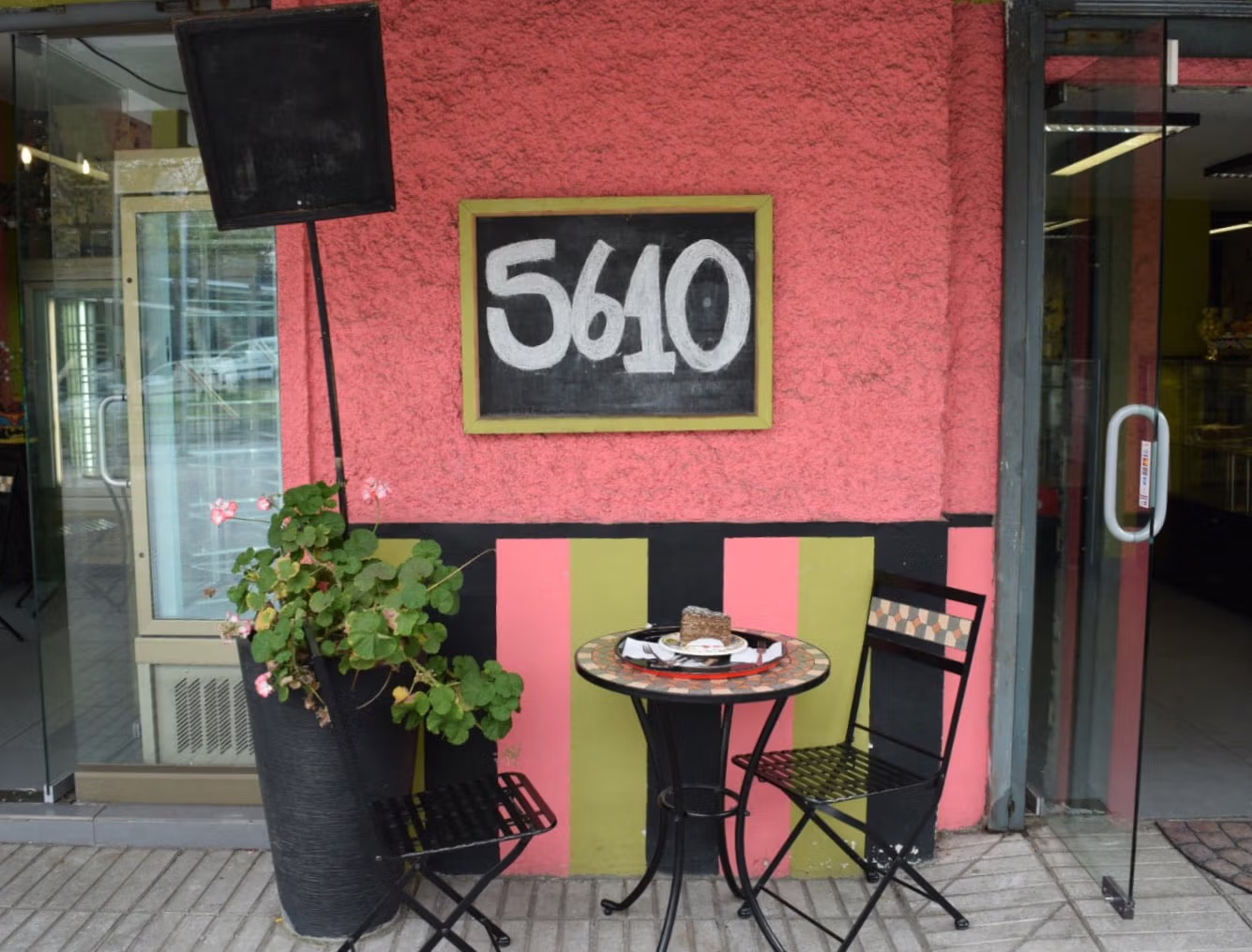
More Chilean Eats (and Exactly Where to Hunt Them Down in Santiago)
You’ve already met Santiago’s big five—lomito, completo italiano, Barros Luco, alfajores, and torta de mil hojas—aka the canon of everyday cravings. Now let’s level-up your food map with more dishes locals order. Think affordable, comforting, and wonderfully Santiago.
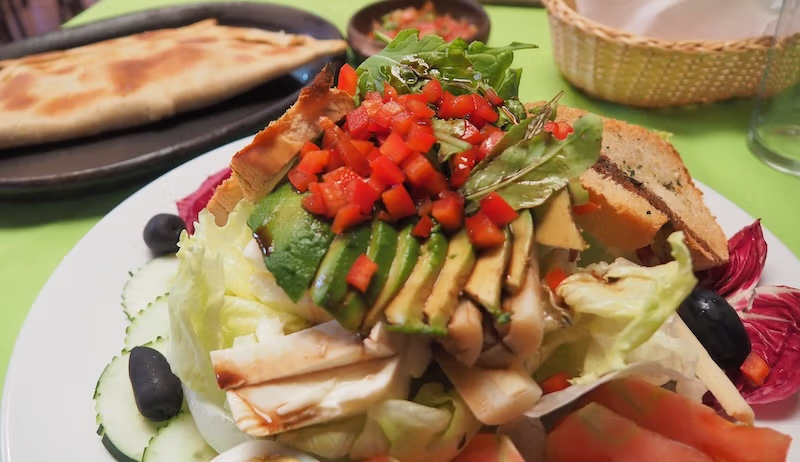
Savoury Staples You Shouldn’t Miss
Empanada de Pino
Chile’s national hand pie: a hefty, oven-baked triangle stuffed with seasoned beef, onion, a wedge of hard-boiled egg, a plump black olive, and sometimes a raisin or two.
Where: Old-school panaderías around Barrio Brasil and Yungay, or market stalls inside La Vega Central (Recoleta). Ask for it al horno (baked), not fried, if you want the traditional crust.
Pastel de Choclo
Think shepherd’s pie meets summer corn. A clay dish layered with pino (that same beef/onion mix), chicken, a hard-boiled egg and olives, all under a sweet-savory mash of puréed fresh corn that caramelizes on top.
Where: Family restaurants (picadas) in Ñuñoa and Maipú; seasonal favorite from December–March.
Cazuela
A clear, golden broth that arrives with generous chunks of beef or chicken, a whole piece of corn on the cob, squash, potato, and rice or noodles. It’s Chile in a bowl, especially on drizzly winter days.
Where: Menú del día diners around La Vega and fondas during national holidays (September).
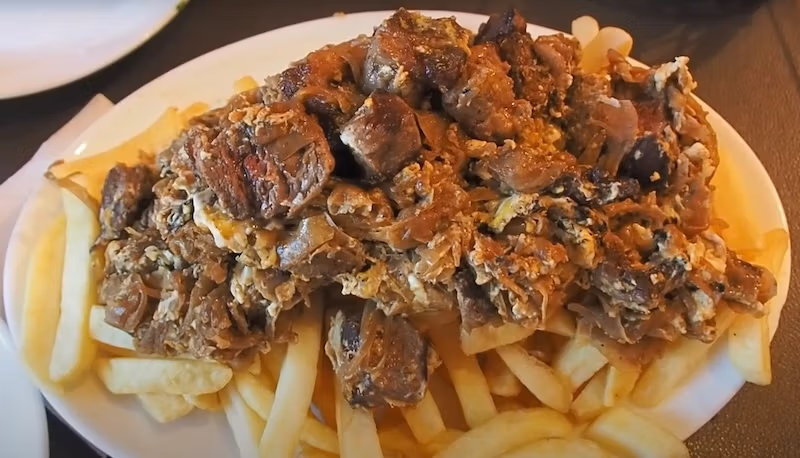
Chorrillana
Post-museum or pre-concert fuel: a messy mountain of fries topped with sautéed onion, thin-sliced beef, and fried eggs. Share it. Really.
Where: Pubs in Bellavista and Barrio Lastarria; great with a local lager.
Churrasco & Chacarero
If the Barros Luco is your grilled-cheese-with-beef crush, meet its cousins. A churrasco is thin-sliced steak on marraqueta with add-ins like tomato and palta (avocado). A chacarero stacks on porotos verdes (green beans) and spicy ají—a refreshing, crunchy twist.
Where: Counter bars downtown (Santiago Centro), many open since the 1940s–60s.
A lo Pobre
Order any protein “a lo pobre” and you’ll get a fried egg crown plus caramelized onions and fries. Steak, chicken, even fish—Chile loves this upgrade.
Where: Broadly available; classic versions near Plaza de Armas and Estación Central.
Sopaipillas (con Pebre or Pasadas)
Rainy-day street snack. These are round, golden discs (some add squash to the dough) enjoyed savory with pebre (Chile’s pico de gallo) or sweet as sopaipillas pasadas, dunked in hot chancaca (molasses-like syrup).
Where: Street carts on stormy afternoons; for sit-down versions try source-of-comfort cafés in Barrio Italia.
Porotos Granados
A hearty summer bean stew with cranberry beans, corn, pumpkin, and basil, often vegetarian by default.
Where: Daily-special boards in Ñuñoa and Providencia during summer.
Seafood Essentials
Santiago sits inland, but Chile’s coastline does the heavy lifting.
- Caldillo de Congrio: Pablo Neruda wrote an ode to this eel soup—silky, briny, restorative.
- Paila Marina: Mixed shellfish stew; the ocean’s answer to a hangover.
- Machas a la Parmesana: Razor clams baked with butter, parmesan, and a squeeze of lemon.
Where: Mercado Central (Puente Cal y Canto metro) and marisquerías in San Miguel. Go early and pick busy stalls.
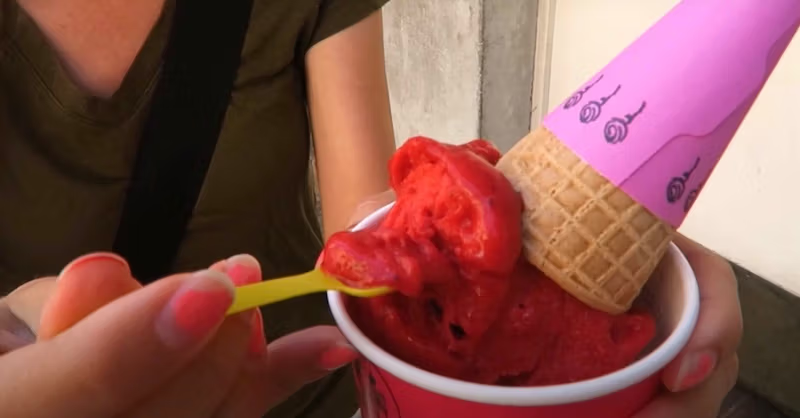
Got a Sweet Tooth?
Kuchen & Berlines
Southern German immigration left Chile a pastry legacy. Kuchen (tarts) with berries or apple are everywhere, and berlines (custard-filled donuts) sell out by late morning.
Where: Barrio Italia bakeries and café rows in Providencia.
Leche Asada & Flan
Home-style baked custards you’ll often find on the postres caseros blackboard.
Where: Traditional diners (fuentes de soda) across Santiago Centro.
Helado de Lúcuma
Ice cream from a beloved Andean fruit—caramelly, maple-like, uniquely Chilean.
Where: Artisan gelato shops in Lastarria and Vitacura.
Mote con Huesillos
Technically a drink, sneaky as dessert: stewed dried peaches in spiced syrup with a scoop of cooked wheat (mote). Served cold in a tall glass—summer in Santiago.
Where: Carts around Parque Forestal, Cerro San Cristóbal base, and Plaza de Armas.
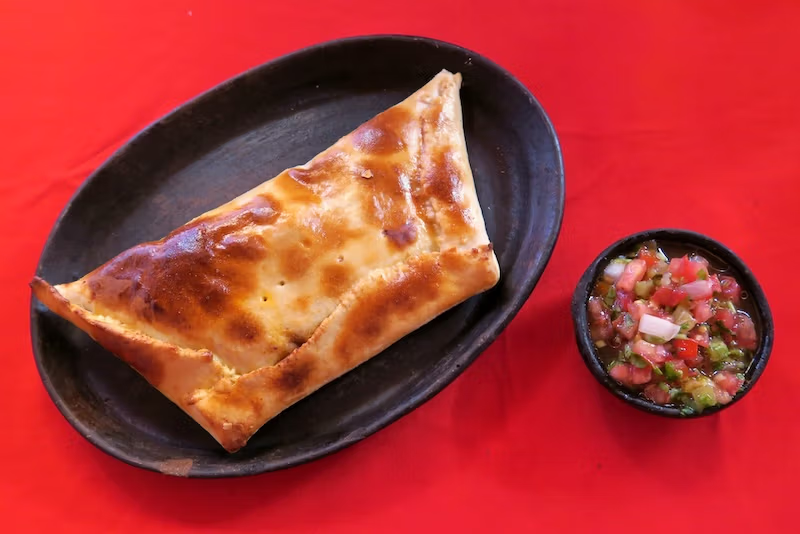
Markets & Neighbourhoods for Hungry Wandering
- La Vega Central (Recoleta): Produce wonderland + tiny kitchens turning out stews, empanadas, and fresh juices. Go hungry, bring small bills, and weave the aisles.
- Mercado Central (Centro): Seafood central. Yes, it’s touristy; yes, the fish is still fantastic. Walk the perimeter for simpler, cheaper stalls.
- Barrio Lastarria: Post-museum grazing—wine bars, helado stands, and modern takes on classics.
- Bellavista: Night owls’ turf: chorrillanas, completos, pisco sours.
- Barrio Italia: Brunch, bakeries, and design shops—a slow afternoon well spent.
- Ñuñoa & Plaza Ñuñoa: Locals’ Santiago: picadas for set lunches, craft beer for sunset.
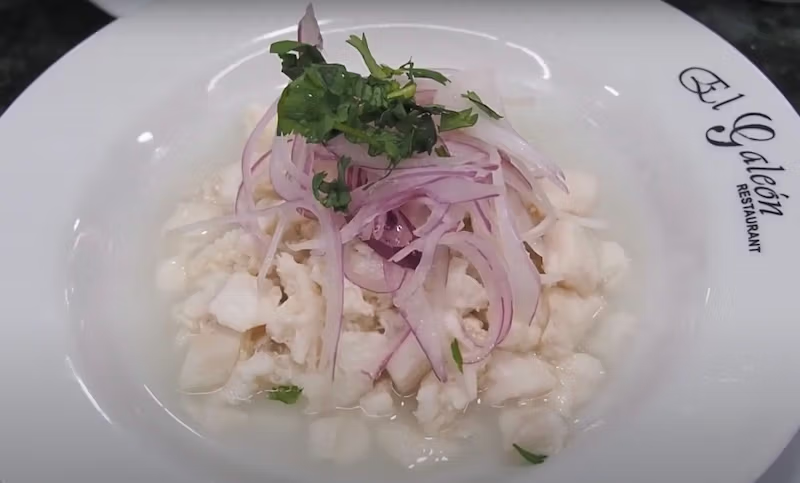
How to Order Like a Local (Tiny Glossary)
| Word | What You’re Asking For |
|---|---|
| Palta | Avocado (ubiquitous and glorious) |
| Sin mayo | Hold the mayo (you’ll thank yourself by day three) |
| Ají | Chili; con ají means spicy (by Chilean standards) |
| Menú del día | Set lunch (soup or salad + main + drink) = value hero |
| Para compartir | To share; portions are often massive |
| A punto / bien cocido | Medium / well-done (for steak or burgers) |
| Marraqueta / Hallulla | Bread choice—with or without crunch |
| Propina | Tip; 10% is customary and often suggested on the bill |
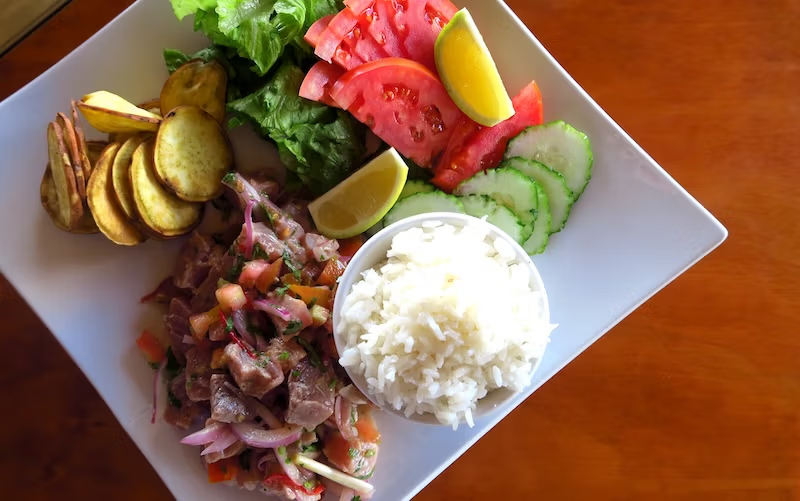
Budget-Smart Moves (So You Can Splurge on Cake Later)
- Chase the menú del día at lunch (weekday value).
- Hit counter seating (fuente de soda) for sandwiches; faster and cheaper.
- Share big plates (chorrillana, pastel de choclo).
- Save sweets for bakery o’clock: many offer late-afternoon deals.
- Carry small cash for markets and street snacks; most sit-down places take cards.
Handy Price Bands (Typical, Per Person)
Sandwich at counter: CLP $3,500–6,500
Set lunch: CLP $6,500–9,500
Seafood main at Mercado Central: CLP $9,000–16,000
Bakery treat + coffee: CLP $3,000–5,000
Mote con huesillos (large): CLP $1,200–2,000
(Prices fluctuate; exchanges vary; these are ballpark ranges to help you plan.)

A One-Day Santiago Food Crawl (Walkable & Wonderful)
| Time | Focus | Where | Tiny Tip |
|---|---|---|---|
| 09:00 | Coffee & sweet start | Barrio Italia café | Split a berlín and a slice of kuchen |
| 10:30 | Market wander | La Vega Central | Buy fruit; snack on an empanada de pino |
| 13:00 | Set lunch | Picada in Recoleta | Order cazuela or porotos granados + house juice |
| 15:30 | Museum break | Lastarria | Gelato—try lúcuma |
| 17:00 | Iconic refresher | Parque Forestal | Mote con huesillos from a cart |
| 19:00 | Sandwich hour | Santiago Centro | Barros Luco or chacarero at a counter bar |
| 21:00 | Nightcap | Bellavista | If you’re into drinks: pisco sour or a local craft beer (or see my Chilean drinks post!) |
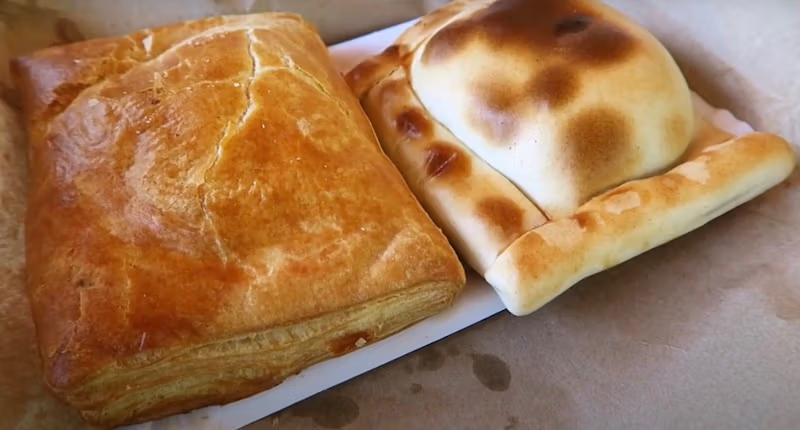
Pocket Order & Pairing Cheat Sheet
| Dish | What It Is | Order Like This | Pair With |
|---|---|---|---|
| Lomito | Pork sandwich, avocado, mayo | “Lomito italiano, sin mayo” (if you prefer) | Local lager |
| Completo | Hotdog w/ avocado, mayo, tomato | “Italiano” or “dinámico” (kraut + sauces) | Soda or mote if it’s hot |
| Barros Luco | Beef + melted cheese | “En marraqueta, por favor” | Light red (País) or a cola |
| Empanada de pino | Baked beef empanada | “Al horno, por favor” | Pebre on top + berry juice |
| Pastel de choclo | Corn-topped casserole | “Sin azúcar arriba” if you like it less sweet | Carménère or a mint lemonade |
| Cazuela | Brothy meat & veg soup | “De vacuno / de pollo” | Side of ají + marraqueta |
| Chorrillana | Fries, beef, onions, eggs | “Para compartir” | Pitcher of beer |
| Torta de mil hojas | Manjar-layered cake | “Una porción para compartir” | Espresso or herbal tea |
Santiago Food Lover’s FAQ: 12 Quick Q&As (what to eat, where to go, how to order & what it costs)
What are the three must-try Santiago sandwiches (and where)?
- Lomito (pork, avocado, mayo; add chucrut): Fuente Alemana (Providencia; Centro).
- Completo Italiano (hot dog + avocado, mayo, tomato): Dominó (multiple branches; counter seating).
- Barros Luco (beef + melted cheese on marraqueta): Confitería Torres (Alameda; classic old-world dining).
I’m craving sweets—what Chilean desserts should top my list?
- Alfajores stuffed with manjar (dulce de leche)—look for chocolate-dipped versions (e.g., Entrelagos counters/shops).
- Torta de Mil Hojas (ultra-thin layers + manjar): Pastelería Angélica and traditional bakeries around Providencia/Ñuñoa.
Beyond sandwiches, which savory classics are essential?
- Empanada de pino (al horno)
- Pastel de choclo (corn-topped casserole)
- Cazuela (brothy meat & veg soup)
- Chorrillana (fries + beef + onions + fried eggs—share it!)
Find them in La Vega Central, neighborhood picadas (Ñuñoa/Providencia), and pub menus in Bellavista/Lastarria.
Where should I go for seafood in the city?
Mercado Central (Puente Cal y Canto) and surrounding marisquerías for caldillo de congrio, paila marina, and machas a la parmesana. Go early, pick busy stalls.
What’s a smart one-day food crawl route?
Barrio Italia (bakery coffee) → La Vega Central (empanada + juice) → Lastarria (gelato, stroll) → Parque Forestal (mote con huesillos) → Centro (counter sandwich) → Bellavista (pisco sour/craft beer).
How much cash should I plan per person?
- Counter sandwich: CLP $3,500–6,500
- Menú del día (set lunch): CLP $6,500–9,500
- Seafood main (Mercado Central): CLP $9,000–16,000
- Bakery + coffee: CLP $3,000–5,000
- Mote con huesillos (large): CLP $1,200–2,000
Cards widely accepted in sit-downs; carry small cash for markets/carts.
Any neighborhoods that are particularly great for grazing?
- La Vega Central (Recoleta): produce, stews, juices, empanadas.
- Mercado Central (Centro): seafood.
- Lastarria: wine bars, gelato, modern Chilean.
- Barrio Italia: bakeries, brunch, design shops.
- Bellavista: night bites (chorrillana, completos).
- Ñuñoa: local picadas and craft beer around Plaza Ñuñoa.
How do I order like a local (and tweak toppings)?
- Palta = avocado. Sin mayo = hold the mayo. Con ají = with chili.
- Bread: marraqueta (crusty) or hallulla (softer).
- Steak doneness: a punto (medium) / bien cocido (well-done).
- Portions big? Ask para compartir (to share).
What’s “mote con huesillos” and where do I find it?
A summer icon: stewed dried peaches in spiced syrup with cooked wheat (mote)—sweet, cold, and filling. Carts around Parque Forestal, Cerro San Cristóbal base, and Plaza de Armas.
I’m vegetarian—what are good bets?
Porotos granados (summer bean stew), ensalada chilena (tomato-onion), sopaipillas (pasadas or with pebre), pastel de choclo in veg versions, bakery sweets, and gelato (lúcuma flavor is a must!). Ask “sin carne/pollo/pescado” and “sin caldo de carne” for soups.
Tipping, hygiene & market etiquette?
Tipping: 10% is customary in sit-downs (often added for approval). At markets, pay first, then perch on shared stools; use hand gel and watch for posted “al horno / frito” options on empanadas. Busy stalls = fresher turnover.
Quick pairings cheat sheet?
- Lomito → light lager
- Completo italiano → soda or mote on hot days
- Barros Luco → a cola or light red (País)
- Empanada de pino → pebre + berry juice
- Pastel de choclo → carmenère or mint lemonade
- Torta de mil hojas → espresso or herbal tea
If you enjoyed this post, you may want to check out these Chilean drinks and their recipes too.
What’s your favourite Chilean dish?

What is the most common Chilean dish?
That’s a difficult question! Sopaipilla is really common on the streets and cazuela is common in the winter. It changes on who you ask, the region of Chile, and the time of year 🙂